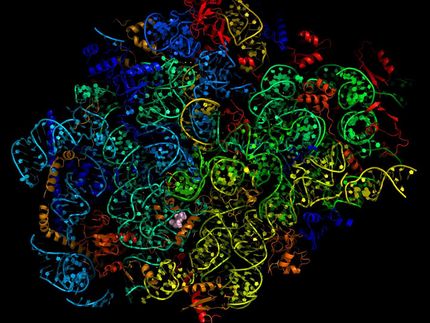Genetic marker for resistance to malaria treatment identified
Global efforts to try and treat and eradicate malaria are being hampered by increasing resistance of the disease-causing Plasmodium parasite to anti-malarial drugs.
A new study led by the University of Oxford has identified genetic markers linked to resistance to the anti-malarial drug piperaquine. This new information can be used as a tool to identify areas where resistance is emerging and where current treatment strategies are likely to fail.
The international collaboration, including researchers jointly from the Wellcome Trust Centre of Human Genetics and the Wellcome Trust Sanger Institute , carried out a genome-wide association study on approximately 300 Plasmodium falciparum samples from Cambodia to study the genetic basis behind piperaquine resistance.
Piperaquine is used in combination with another anti-malarial drug, artemisinin, as a recommended frontline malaria treatment in many areas of the world. With parasites becoming increasingly resistant to artemisinin, increasing resistance to piperaquine as well could become a major public health problem.
Dr Roberto Amato, lead author of the study said: ‘Our findings provide a tool to monitor in a rapid and cost-effective way the spread of resistance, ultimately helping public health officials deploying the most effective therapies.’
By studying the genome of the parasites infecting patients who were not responding to treatment, the scientists identified two markers linked with piperaquine resistance. One way that anti-malarial drugs can work is by targeting the biological process that allows parasites to digest haemoglobin in the red blood cells; a family of proteins called plasmepsins plays a key role in this process. The scientists found that parasites with extra copies of the genes encoding two specific proteins of the plasmepsin family were more likely to be resistant to piperaquine. A second genetic marker linked with resistance was found to be a mutation on chromosome 13.
Professor Dominic Kwiatkowski , director of the Centre for Genomics and Global Health, and a lead author on the study, said: ‘These findings provide the tools needed to map how far this resistance has spread, looking for these molecular markers in parasites in Cambodia and neighbouring countries. This will allow national malaria control programmes to rapidly recommend alternative therapies where possible and where needed, enhancing treatment for patients, and helping towards the ultimate goal of eliminating malaria.’
Original publication
Other news from the department science
These products might interest you

Kjel- / Dist Line by Büchi
Kjel- and Dist Line - steam distillation and Kjeldahl applications
Maximum accuracy and performance for your steam distillation and Kjeldahl applications

AZURA Purifier + LH 2.1 by KNAUER
Preparative Liquid Chromatography - New platform for more throughput
Save time and improve reproducibility during purification

Get the analytics and lab tech industry in your inbox
By submitting this form you agree that LUMITOS AG will send you the newsletter(s) selected above by email. Your data will not be passed on to third parties. Your data will be stored and processed in accordance with our data protection regulations. LUMITOS may contact you by email for the purpose of advertising or market and opinion surveys. You can revoke your consent at any time without giving reasons to LUMITOS AG, Ernst-Augustin-Str. 2, 12489 Berlin, Germany or by e-mail at revoke@lumitos.com with effect for the future. In addition, each email contains a link to unsubscribe from the corresponding newsletter.
























































